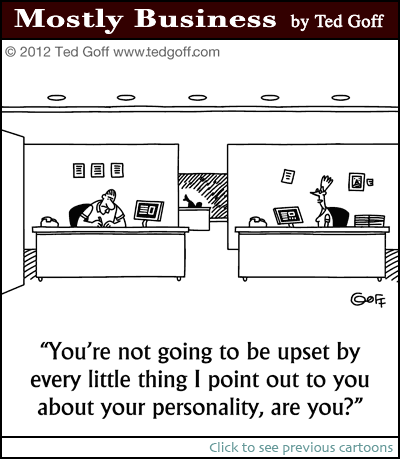 I am a big fan of the Guardian. Especially the media section on Mondays is a treat. The weekly poster supplements are very attractive tools to children (and grown ups!). A subscription to the Guardian is an excellent gift to start 2007 with.
I am a big fan of the Guardian. Especially the media section on Mondays is a treat. The weekly poster supplements are very attractive tools to children (and grown ups!). A subscription to the Guardian is an excellent gift to start 2007 with.
Tuesday, December 26, 2006
New Impactroom Partner - Subscribe to the Guardian or The Observer :-)
 I am a big fan of the Guardian. Especially the media section on Mondays is a treat. The weekly poster supplements are very attractive tools to children (and grown ups!). A subscription to the Guardian is an excellent gift to start 2007 with.
I am a big fan of the Guardian. Especially the media section on Mondays is a treat. The weekly poster supplements are very attractive tools to children (and grown ups!). A subscription to the Guardian is an excellent gift to start 2007 with.
Saturday, December 23, 2006
Merry Christmas!! 6 Christmas Quotes

"Let's be naughty and save Santa the trip." (Gary Allan)
“One of the nice things about Christmas is that you can make people forget the past with a present” (anonymous)
“Christmas is the time when kids tell Santa what they want and adults pay for it. Deficits are when adults tell government what they want and their kids pay for it.” (Richard Lamm)
“From a commercial point of view, if Christmas did not exist it would be necessary to invent it.”
(Katherine Whitehorn)
“Christmas is the Disneyfication of Christianity” (Don Cupitt)
“Christmas gift suggestions:
To your enemy, forgiveness.
To an opponent, tolerance.
To a friend, your heart.
To a customer, service.
To all, charity.
To every child, a good example.
To yourself, respect.”
(Oren Arnold)
Friday, December 22, 2006
ACE lunch 2006 London

ACE – the Association of Circulation Executives – is a UK association of like-minded executives drawn from the fields of newspaper and magazine publishing, news wholesaling and distribution and service provision.
One of the most popular events of the ACE calendar is the ACE Christmas Luncheon held at the Grosvenor House hotel in London. More than 1,100 members and guests enjoy a truly international publishing event whilst raising funds for charity.

To my surprise the lunch involved a lot of standing up, praying, hailing kings and queens, singing (hand in hand) and wearing stuff on your head you couldn't afford be seen with in continental Europe. A truly bizar, though warm, very very British event (not surprisingly the goal of the organization, founded in 1951, clearly states: ...to foster fellowship, friendship, and the exchange of ideas between members of our industry.)
This is networking to good effect.
Thursday, December 21, 2006
Oxford
 Saïd Business School (SBS)
Saïd Business School (SBS)
First big building leaving the train station at Oxford. SBS is the business school of the University of Oxford. After a gift of £20 million from Wafic Saïd in 1996 the former 'University of Oxford School of Management' became the Saïd Business School. (The gift was contested by Oxford students at the opening of the new building in 2001 - after an extra donation of £3 million for constructing the building-. The students claim Saïds fortune comes from questionable armaments deals between UK and Saudi Arabia.)
The MBA programme ranked 20th worldwide and 2nd in the UK in the Financial Times Global MBA Rankings 2006.
 Wafic Riad Saïd
Wafic Riad Saïd
A Syrian businessman(1939) who became a multi-millionaire working for the Saudi Royal Family as a consultant in the fields of infrastructure and armaments projects.

Saïd Business School entrance

Dining hall, Trinity College
One of the smaller (ca. 300 students) of the 39 colleges at Oxford admitting students for degree courses (1555).
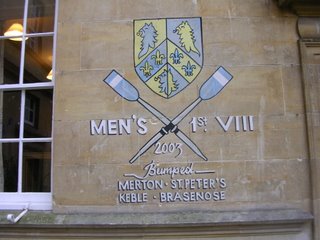 Student house at Trinity College, rowing team.
Student house at Trinity College, rowing team.
 English breakfast, while contemplating the idea of building a future leadership academy or institute out of OMEC
English breakfast, while contemplating the idea of building a future leadership academy or institute out of OMEC
 Christ Church
Christ Church
A unique institute with a dual function. On the one hand it is one of the largest colleges in the University of Oxford. On the other hand it is also the church for the Diocese of Oxford. The Cathedral still follows the old Oxford Time which is five minutes west of Greenwich. (6 p.m. Oxford time is 6.05 p.m. GMT). Every day at '6' the Cathedral Choir will sing in the church.
Tuesday, December 12, 2006
Top Business Schools in Europe - Where To Get Your Top MBA
1. London Business School, UK. Ranked nr 1 in the Financial Times top ten business school listing. MBA tuition fees: 42.500 £. http://www.london.edu
2. Insead, Paris/Fontainbleau, France. Executive MBA tuition fees: 85.000 €. http://www.insead.edu
3. HEC, Paris, France, l’Ecole des Hautes Etudes Commerciales. EMBA tuition fees: 41.200 €. http://www.hec.fr
4. Cass Business School, City University, London, UK. The EMBA was ranked third-best in Europe by the FT. EMBA tuition fees: 31.000 £. http://www.cass.city.ac.uk
5. Otto Beisheim School of Management, Frankfurt, Valladur, Germany. Linked with Northwestern Kellog School of Management, USA. Named after billionaire Otto Beisheim, owner of Media Markt. EMBA tuition fees: 57.000 €. http://www.whu.edu
6. Vlerick Leuven Gent Management School, Leuven/Gent, Belgium. Stats show it is the number one global school for graduates gaining employment within three months. Part-time MBA tuition fee: 19.000 €. http://www.vlerick.be
7. Instituto Empressa, IE, Madrid, Spain. Is considered a 'high pressure' school. EMBA tuition fees: 41.000 €. http://www.ie.edu
8. SDA Bocconi School of Management, Milan, Italy. Milans's Bocconi University is the country's top business college and the School of Management its top graduate business school. Part-time EMBA fees: 28.000 €. http://www.sdabocconi.it/md
Did you study at one of these fine universities ? Do you agree with above ranking ?
Thursday, November 30, 2006
10 remarkable points to remember Friedman by (5/5)
Milton Friedman (31/07/1912 – 16/11/2006)
 1. 20th century economics showed 2 major important economical schools: the ‘Keynesian economics’, an economic theory based on the ideas of John Maynard Keynes, and ‘Monetarism’ a theory largely attributed to Milton Friedman.
1. 20th century economics showed 2 major important economical schools: the ‘Keynesian economics’, an economic theory based on the ideas of John Maynard Keynes, and ‘Monetarism’ a theory largely attributed to Milton Friedman.2. Friedman attacked Keynes beliefs in the 1950’s in his book ‘A Theory of the Consumption Function’. But Friedman acknowledged the fact that even he started out as a Keynesian. “We all use the Keynesian language and apparatus; none of us any longer accepts the initial Keynesian conclusions", he says.
3. Keynes says the economy is best served by government and parliament. They have to regulate the economy via taxes and government spending. Friedman and the monetarists on the other hand argue government should not interfere with economy at all. The economy should be left to the people and the companies. Exceptionally central banks can interfere and influence the economy through regulation of the quantity of money. Monetarists speak of ‘laissez-faire economics' (economic theory based on the belief that markets and the private sector could operate well on their own, without state intervention).
4. According to Keynes (1957) individual consumption depends on wages, and therefore it is an unstable parameter. Increase in wages leads to more consumption, dismissals lead to decreased consumption. Friedman does not agree: it is the ‘income-expectation on long term’, the so called ‘permanent income hypothesis’ that influences consumption. It means that consumers will spend not driven by their current income, but by their long term income expectations. Individual consumption is therefore a much more stable parameter.
5. Keynesians argue that the quantity of money should not be considered as a reliable economical instrument because the circulation speed of money is not constant. Friedman however proved that the money velocity as well as money production is constant. This means that the quantity of the money determines price setting and the level of inflation (the supply of money being larger than the demand for money). The inflation is to be regulated by controlling the amount of money poured into the national economy by the National Banks.
6. Nobel Price for Economic Science in 1976 for his work on consumption analysis and monetary theory.
7. Friedman played a remarkable role in the abolition of the draft in the 1970s in the U.S. He stated that his role in eliminating the draft was his proudest accomplishment.
8. Friedman was a Professor of Economics at the University of Chicago from 1946 to 1976. He created an intellectual community that produced a number of Nobel Prize winners, known as the 'Chicago School of Economics'.
9. Friedman co-wrote and co-produced ‘Free to Choose’ with his wife Rose D. Friedman. They also created the 'Milton and Rose D. Friedman Foundation', an organisation determined to introduce and promote schoolvouchers in the American schoolsystem as well as the freedom of choice in education. Their memoirs are published as ‘Milton and Rose D. Friedman, Two Lucky People’ (1998). Milton Friedman claimed that Rose was probably the only person in the world to have ever won an argument from him.
10. Milton Friedman was cremated. He wanted his ashes be scattered over the San Francisco bay.
Sunday, November 26, 2006
"There's no such thing as a free lunch" and other quotes from Friedman (4/5)
2. I'm in favor of legalizing drugs. According to my values system, if people want to kill themselves, they have every right to do so. Most of the harm that comes from drugs is because they are illegal.
3. The most important single central fact about a free market is that no exchange takes place unless both parties benefit. 4. The most important ways in which I think the Internet will affect the big issue is that it will make it more difficult for government to collect taxes.
5. Inflation is caused by too much money chasing after too few goods.
6. On the difference between public vs. private education: "Try talking French with someone who studied it in public school. Then with a Berlitz graduate."
7. There's no such thing as a free lunch.
8. The problem of social organization is how to set up an arrangement under which greed will do the least harm, capitalism is that kind of a system.
9. The only way that has ever been discovered to have a lot of people cooperate together voluntarily is through the free market. And that's why it's so essential to preserving individual freedom.
10. The power to do good is also the power to do harm.
Wednesday, November 22, 2006
6 Quotes from Friedman about Government (3/5)
 1. Governments never learn. Only people learn.
1. Governments never learn. Only people learn.2. Many people want the government to protect the consumer. A much more urgent problem is to protect the consumer from the government.
3. Only government can take perfectly good paper, cover it with perfectly good ink and make the combination worthless.
4. The black market was a way of getting around government controls. It was a way of enabling the free market to work. It was a way of opening up, enabling people.
5. President Kennedy said, "Ask not what your country can do for you - ask what you can do for your country."... Neither half of that statement expresses a relation between the citizen and his government that is worthy of the ideals of free men in a free society. "What your country can do for you" implies that the government is the patron, the citizen the ward. "What you can do for your country" assumes that the government is the master, the citizen the servant.
6. We have a system that increasingly taxes work and subsidizes nonwork.
Tuesday, November 21, 2006
Friedman on Freedom (2/5)
Monday, November 20, 2006
Milton Friedman dies at 94 (1/5)
You spend your own money on yourself.
You spend your own money on someone else.
You spend someone else’s money on your own.
You spend someone else’s money on someone else.
Also read:
- IMPACTROOM for managers, marketeers and mothers*: Friedman on Freedom (2/5)
- IMPACTROOM for managers, marketeers and mothers*: 6 Quotes from Friedman about Government (3/5)
- IMPACTROOM for managers, marketeers and mothers*: "There's no such thing as a free lunch" and other quotes from Friedman (4/5)
- IMPACTROOM for managers, marketeers and mothers*: 10 remarkable points to remember Friedman by (5/5)
Wednesday, November 15, 2006
Who Becomes Great ? The 10-Year-Rule.
(The ten-year rule represents a very rough estimate, and most researchers regard it as a minimum, not an average. In many fields (music, literature) elite performers need 20 or 30 years' experience before hitting their zenith.)
So greatness isn't handed to anyone, it requires a lot of hard work. Yet that isn't enough, since many people work hard for decades without approaching greatness or even getting significantly better. What's missing ? The best people in any field are those who devote the most hours to what the researchers call 'deliberate practice'. It is activity that's explicitly intended to improve performance, that reaches for objectives just beyond one's level of competence, provides feedback on results, and involves high levels of repetition. For example: Simply hitting a bucket of balls is not deliberate practice, which is why most golfers don't get better. Hitting an eight-iron 300 times with a goal of leaving the ball within 20 feet of the pin 80% of the time, continually observing results and making appropriate adjustments, and doing that for hours every day - that's 'deliberate practice'. Consistency is crucial.
Monday, November 13, 2006
People of the Night (Preparation Economy)

They are the people of the night, the DP's (delivery persons), the people that deliver the most sophisticated newspapers and magazines of the world to your door in the middle of the night. So that you, the reader, can read or at least go through the newspaper or mag before you go to work. The people of the night are at the bottom of the food chain in distribution country. There couldn't be a
 bigger difference in way of living between the DP's and the readers they serve.
bigger difference in way of living between the DP's and the readers they serve.(DP Lino in Brussels, capital of Europe, serving the
Always at round in the deserted capitals of the world, living of cheap coffee (not Red Bull, too expensive) and junkfood from the night shops, in the worst imaginable sorts of
 weather, to be able to go at home around 7 AM after having digested the morning traffic jams, often to go
weather, to be able to go at home around 7 AM after having digested the morning traffic jams, often to go(Delivery of the Wall Street Journal, the Financial Times, The Times, to companies and institutions around the Brussels stock exchange)
to a second job in the early afternoon, before returning to the nightly newspaperworld again
(Night manager Luc in a Brussels warehouse preparing
that same evening. I have a deep respect for our People of the Night, without them my job would be meaningless, our customers, both readers and advertisers, wouldn't be served. They run what I call a 'preparation economy' during the night. Every action they undertake serves a higher goal during the day. They ship, handle, pack and label products, the essence being 'creation of movement' so our daytime economy wouldn't come to a standstill because lack of products or information.
Thursday, November 02, 2006
week 44 - a few days in the Ardens - Pareto/Zipf distribution
The best known manifestation of Pareto/Zipf distributions is the 80/20 Rule, which is often used to explain that 20 % of products count for 80 percent of revenues, or 20 percent of our time accounts for 80 percent of our productivity, or any number of other comparisons that all share this characterisitic of a minority having disproportionate impact.
Wednesday, October 25, 2006
London City Airport Bookstore - Business Chart
I also like to wait a bit between the detectives and the historic novels, from where you have an excellent but somewhat hidden view on the Business Charts to check out who is buying the management books (it is also the perfect place from where to take a quick picture with a digital camera -amateur results see below- without being noticed or reprimanded by smiling yet unforgiving young African store clerks). The results speak for themselves. Buyers of business books are male, male, male (I have never ever seen a woman buy a management book). The younger buyer is around his thirties and wears a smart costume. He is to become the next CEO of the company he works for. The older buyer is around his late forties, begin fifties and wears a shabby costume. He always dreamt of the CEO position in one of the companies he worked for. Recently he became self-employed because he was a victim of a rationalization round in his last company.








Friday, October 20, 2006
Following New Trader Magazine to its UK Market
 I followed the first issue of Trader magazine produced and co-published by Dow Jones, from the Belgian printplant to the UK market. More than 50.000 traders working in the financial district of London will receive their personal copy this week
I followed the first issue of Trader magazine produced and co-published by Dow Jones, from the Belgian printplant to the UK market. More than 50.000 traders working in the financial district of London will receive their personal copy this week .
.It is by all means a fantastic magazine, brilliantly targeted to high potentials with unearthly high incomes and spending habits.




Distribution in the heart of London to the worlds biggest financial conglomerates, grouped around Bishopsgate or Canary Wharf is an art on its own.
Magazines are transferred from dark underground loading docks protected by grim looking guards, via shabby elevators to marble led corridors and design lit reception area's, operated by stunning receptionists drawn from tv commercials.
I had the privilege of accompaning Jimmy and Diane, a couple that lives from distributing newspapers and magazines to this schizophrenic world day by day, never in bed before 4 AM, to be at work again before noon time. (They have 1 client they are really proud of, Downing Street 10, the house of the prime minister, who wants all major UK newspapers delivered to his door within 15 minutes after printing)


London, Canary Wharf, after work drink
Tuesday, October 17, 2006
Albrecht on outsourcing war (7)
"Business experts are fond of advising companies to "outsource" - i.e. have somebody else do - everything but their "core competencies." This has led to a global shake-out as various business functions get outsourced to countries (and companies in those countries) who are able to do it cheaper (and sometimes better).This leads to an intriguing proposition: all countries could outsource their warmaking efforts to the United States. After all, the US is clearly the leading military force in the world, with the latest technology and the most highly trained, expert fighters. No other country makes war as well as the US does. If all countries outsourced their warmaking to the US, they could be sure of getting the best operations for their money.
Where would this lead? For one thing, the country willing to put up the most money would always win, because both sides would be buying military operations of identical quality.The drawback, one might say, would be that Americans would be fighting against each other. But, if the best-funded side would always win, then Americans could simply scale down the battles to make sure the right sponsor won, but with minimum casualties - and higher profits. In the end, maybe the wars could be fought with computers, and the losing side would have to pay money to the winning side. Would this work?"
Monday, October 16, 2006
Albrecht: 3 things leading to organizational intelligence (6)
Karl Albrecht: "The best way is for the senior leaders of the organization to start thinking and talking about their enterprise as a potentially intelligent operation, and to undertake a never-ending assessment of its possibilities for advancement. There should be an ongoing conversation around the simple question: "How can we operate more intelligently?"
The second step is to start giving people the authority to think. When even the lowliest worker believes that his or her ideas, experiences, insights, and suggestions will be listened to and appreciated, we begin to liberate more of the tremendous brainpower that we've already hired - and that we're already paying for every payday.
The third step is a systematic, relentless, and never-ending attack on the causes of collective stupidity: organizational structures that don't make sense; "silos" that have grown up between departments or factions; policies, rules, and procedures that thwart the value-creation process; incompetent, ineffective, or failing managers; turf wars between managers and departments; union-management conflict; caste systems that have grown up in the organization; top-management behaviors that confuse, divide, or demotivate people; unfair or unjust
treatment of employees that destroys morale and the sense of shared fate; and, sometimes, even the lack of a clearly defined vision and mission.
The most intelligent organizations operate on the principle that 'good is never good enough'."
Friday, October 13, 2006
Impactroom Readership Explodes
 I have no idea how nor why it happened, but suddenly the Impactroom blog started receiving serious numbers of visitors. From an average of 30 visitors a day readership exploded to nearly 900 visitors last Saturday. The graph shows a decline after the initial peak, but still, some 3000 visitors in 1 week, that's quite spectacular for a blog this size. All the visitors are coming from the US, that makes it more mysterious. On top of that the visitors come from all over the US, the readership is not concentrated at all. If anyone has an idea what could have happened, don't hesitate to contact me. Thank you all for the tremendous support and interest.
I have no idea how nor why it happened, but suddenly the Impactroom blog started receiving serious numbers of visitors. From an average of 30 visitors a day readership exploded to nearly 900 visitors last Saturday. The graph shows a decline after the initial peak, but still, some 3000 visitors in 1 week, that's quite spectacular for a blog this size. All the visitors are coming from the US, that makes it more mysterious. On top of that the visitors come from all over the US, the readership is not concentrated at all. If anyone has an idea what could have happened, don't hesitate to contact me. Thank you all for the tremendous support and interest.
Thursday, October 12, 2006
Albrecht's Law: Examples of Successful Organizational Intelligence and Collective Stupidity (5)
An example of an organization that suffered from 'collective stupidity':
Karl Albrecht: "One of the most legendary episodes of collective stupidity was with Ford Motor Company in Detroit. In the early 1980s, they launched a new advertising program with the slogan "No unhappy owners." The TV ads promised that every Ford owner would have a car he or she was happy with, and if there was anything wrong, the company would make it right. The only problem was that they neglected to tell several thousand dealers about the ads. The dealers were swamped with unhappy owners, who became more unhappy when the dealers couldn't handle the volume of traffic.
This is the quintessential case of what I call "ballistic podiatry," otherwise known as shooting one's self in the foot."
An example of an organization that successfully utilized Organizational Intelligence:
Karl Albrecht: "On the opposite side, one of the legendary examples of collective intelligence, which has been going on for many years, is the remarkable orchestration of the daily experience of magic in the Disney theme parks. From the recruitment, indoctrination, training, placement, and supervision of the employees, all the way to the design and maintenance of the facilities, the delivery of customer value expresses the Disney business model, which is "fun and fantasy in a theatrical setting." Disney designers and managers are some of the world's best experts at eliminating the contradictions to the core proposition of value."
Wednesday, October 11, 2006
Albrecht on Imagination (4)
Karl Albrecht: In all of the developed economies, organisations are shifting from "thing-work" to "think-work." This applies to government and the non-profit sector as well as the corporate sector. In the knowledge economy, fewer and fewer people make their living by making things, and more of them make their living by working with data, information, and knowledge. This means that practical thinking skills - including imagination, but certainly not limited to that - will be ever more in demand.
HR experts predict an increasingly severe "smart gap," meaning that we'll have a tougher time finding employees who can think beyond their noses. Inasmuch as the public education systems are failing miserably to provide us with the smart people we need, we will find it necessary to grow our own smart people. I believe more and more organisations will take up the role of educator of last resort, and invest more heavily in the mental competence of their workers.
At a time when companies are spending tens of millions of dollars on information technology - the machine software - they've so far not seen fit to spend a few tens of thousands of dollars on improving the mental skills of their employees - the human software. As we begin to realize how much of the IT investment is being wasted or misdirected, I believe we'll be spending less on the machine software and more on the human software.
Tuesday, October 10, 2006
Karl Albrecht, the WASM and the 7 components of Organizational Intelligence (3)
According to the training manual of a restaurant chain that espoused the WASM, the manager should first explain to the employee what a WASM is and why it is important to be able to give one. Then the manager should say, "Now I'm going to demonstrate a WASM," after which he would WASM the employee. "Now it's your turn. Please demonstrate a WASM for me" after which the employee should WASM the manager.
Now that your curiosity is piqued, a "WASM" is "a warm and sincere smile."
As long as we give employees the impression that thinking of any sort is not allowed, Organizational Intelligence (OI) is not a possibility. Albrecht arguments that management needs to think of and treat employees as the self-motivated adults they are. And that's what the 7 components of OI spell out. Strategic vision is the sense of purpose and direction of the organization. Performance pressure includes the basics to get there: performance goals, clear roles and responsibilities, and feedback. Alignment and congruence are structural in nature and include structures that are appropriate to the mission and priorities, yet empowering and enabling employees to get their jobs done. Shared fate is the "we're all in this together" feeling--that everyone is treated as and feels as a valued member of the organization. Knowledge deployment is the flow of information into and around the organization. It includes cultural and structural elements to encourage and allow this to happen. Appetite for change is the culture of continuous improvement. With these pieces in place, then the valued and valuable employees who have a clear understanding of the direction, who understand their role in achieving that goal and feel that they have the freedom to get their job done, who can get the information they need, and even change the organization if needed, can provide the heart. Heart is commitment to the organization accompanied by the motivation to move the entire company ahead. It goes beyond just doing one's own job (or even doing it well).
Monday, October 09, 2006
Albrecht's Law of Collective Stupidity (2)
- strategic vision
- appetite for change
- alignment and congruence
- performance pressure
- knowledge deployment
- heart
- shared fate
Many managers have an unconscious belief about workers or employees as being separate from, and maybe not quite as good as, "the organization." To this day, many of our OI practices and assumptions, and many management practices, may still be based on the assumption that employees are basically interchangeable parts of a production machine.
Albrecht thinks this belief impacts OI. He suggests that this belief can be traced back to Taylor, the Father of Scientific Management (Frederick Winslow Taylor 1856 - 1915) who concluded two things from his studies. First, that work procedures were inefficiently designed and second, that the fundamental motivation of hired workers was to do the least amount of work as possible. Further, Taylor is quoted as saying, "Most executives want workers who are house-broken. They talk a good game about wanting highly motivated employees who can add value, but when it comes down to particulars they really value obedience. Many executives are threatened by smart people below them."
Albrecht argues that these believes are somehow still to be found in companies today. He gives many examples of this happening in businesses that he is consulting with currently. It occurs on many different levels. It can be just the way management refers to employees as "a resource" (which according to Albrecht is patronizing and trite). At its worst, Albrecht calls it the "rabble hypothesis" or the view of employees as the "great unwashed: unintelligent, unmotivated, socially naive, and incapable of original thought."
Friday, October 06, 2006
Albrecht's Law: “Intelligent people, when assembled into an organization, will tend toward collective stupidity.” (1)
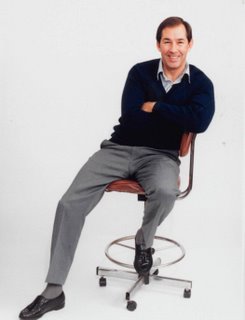 In the early morning hours of September 30, 1999, NASA’s Mars climate orbiter spacecraft, a $125 million marvel of engineering, designed to orbit Mars, suddenly disappeared from the screens of mission control and, seconds later, its signal vanished for ever. An investigation of this incident revealed that the NASA engineers who wrote the navigation software for the orbiter had been working in separate groups and had apparently not approached the mission as a whole. In fact, one group had been programming its calculations using metric units – kilometers and kilograms – while the other had been relying on American style English units – miles and pounds. That led to the critical flaw in the orbiter’s navigation. It inevitably burned to crisps due to friction with the atmosphere of Mars.
In the early morning hours of September 30, 1999, NASA’s Mars climate orbiter spacecraft, a $125 million marvel of engineering, designed to orbit Mars, suddenly disappeared from the screens of mission control and, seconds later, its signal vanished for ever. An investigation of this incident revealed that the NASA engineers who wrote the navigation software for the orbiter had been working in separate groups and had apparently not approached the mission as a whole. In fact, one group had been programming its calculations using metric units – kilometers and kilograms – while the other had been relying on American style English units – miles and pounds. That led to the critical flaw in the orbiter’s navigation. It inevitably burned to crisps due to friction with the atmosphere of Mars.In his book “The Power of Minds at Work”, Karl Albrecht (picture) cites this case as an example for what is been known now as Albrecht’s law: “Intelligent people, when assembled into an organization, will tend toward collective stupidity.”
Arguing that in organizations, the sum of all individual minds only rarely equals the level of organizational intelligence, he identifies several factors that may contribute to this dysfunction. Based on more than 25 years’ experience as a consultant, Albrecht contends that organizational “entropy” (that is, the energy of a system that remains unavailable for conversion to work), ineffective decision-making processes, and cultural clashes arise in every organization. With employees working in separate departments, each department protecting its turf and often not knowing what the others are doing, “collective brain power gets wasted,” Albrecht says, thus compromising the mission of the enterprise. Collaboration and knowledge management, the two major buzzwords of today’s enterprise, may work on academic paper but are far from being effectively applied in practice.
Tuesday, October 03, 2006
Concepticide
Friday, September 29, 2006
He who builds a museum must truly be a leader.
 My old professor in Sports History, Prof.Dr.R.Renson always dreamt of a professional Sports Museum. After years of hardship he finally succeeded in creating probably one of the most interesting museums in the Benelux. He who builds a museum from scratch must truly be a leader, and most certainly a people manager.
My old professor in Sports History, Prof.Dr.R.Renson always dreamt of a professional Sports Museum. After years of hardship he finally succeeded in creating probably one of the most interesting museums in the Benelux. He who builds a museum from scratch must truly be a leader, and most certainly a people manager.Truth is, it was not the collection nor one outstanding object that took me by surprise. It were...the toilets.
(Don't hesitate to visit the museum, Sportimonium, Hofstade, Belgium and especially the unique Flemish Folk Games Garden)(www.sportimonium.be)
Thursday, September 28, 2006
"Flanders fits you"
Blauw 2945 100/45/0/14% 0/87/166 ID649F 5017
Paars 5135 47/64/28/0% 140/92/122 956E8E 4001
Oranje 153 0/46/100/18% 184/105/5 D18316 2000
Groen 356 95/0/100/27% 0/115/54 00853E 6010
Rood 704 0/90/72/29% 158/38/41 B42C33 3002
Geel 123 0/24/94/0% 252/201/23 FEC423 1004
Zwart Black 0/0/0/100% 0/0/0 000000 9005
What is this code?
This code is the new Flanders, the region in Belgium where I come from. The Government of Flanders decided to create a proper logo. Flemings can apply for the u
 se of the logo in their own organisation, company or service. The figures above indicate the colorconfiguration of the logo for external printers. One sentence struck me when I read the press-kit. "The new logo is thus not the logo of the Flemish Government, but of Flanders, which is precisely why it can be used by any Flemish organisation or service for its own communication abroad.".
se of the logo in their own organisation, company or service. The figures above indicate the colorconfiguration of the logo for external printers. One sentence struck me when I read the press-kit. "The new logo is thus not the logo of the Flemish Government, but of Flanders, which is precisely why it can be used by any Flemish organisation or service for its own communication abroad.".Baseline to go with the logo is in 4 languages: "Flanders fits you", "La Flandre vous va bien", "Flanderen passt zu dir", "Vlaanderen past je perfect".
Graphically speaking, the new logo is used as sub-logo, which means that it is subordinate to the logo of the relevant organisation or service itself. It is a qualitative label of origin, an “appellation d’origine”, which says: “This is from Flanders.”
Wednesday, September 27, 2006
End of 10 management lessons based on stories and jokes.
Monday, September 25, 2006
Management Lesson 10/10 (India)
The man returned to camp and spent several hours perfecting his aim for short distances and quick firing. On the following day, he again stalked the tiger. Finally, he spotted the beast at some distance. The tiger was practicing his short leaps.
Management lesson: Don' t think too soon you are ahead of your enemy/competitor.
Friday, September 22, 2006
Management Lesson 9/10
Mr. Wrigley replied, "How fast do you think this airplane is flying?" The man answered, "Oh, I guess about 600 miles per hour." Mr. Wrigley responded. "I think that's fast enough, don't you?" The man agreed that indeed, it was fast enough. "Well then," asked Mr. Wrigley, "why doesn't the pilot turn off the engines and save all that expensive jet fuel?"
Thursday, September 21, 2006
Management Lesson 8/10 - "Where to Place Them"
If they have taken the table apart, put them in Engineering.
If they are counting the butts in the ashtray, assign them to Finance.
If they are waving their arms and talking out loud, send them to Consulting.
If they are talking to the chairs, Personnel is a good spot for them.
If they are wearing green sunglasses and need a haircut, Computer Information Systems is their niche.
If the room has a sweaty odour, perhaps they're destined for the Help Desk.
If they mention what a good price we got for the table and chairs, put them into Purchasing.
If they mention that hardwood furniture DOES NOT come from rainforests, Public Relations would suit them well.
If they are sleeping, they are Management material.
If they are writing up the experience, send them to the Technical Documents team.
If they don't even look up when you enter the room, assign them to Security.
If they try to tell you it's not as bad as it looks, send them to Marketing.
Wednesday, September 20, 2006
Management Lesson 7/10
"Excuse me," he shouted. "Can you help me? I promised my friend I would meet him a half hour ago, but I don't know where I am."
The man below responded: "Yes. You are in a hot air balloon, hovering approximately 30 feet above this field. You are between 40 and 42 degrees North Latitude, and between 58 and 60 degrees West Longitude."
"You must be an engineer," responded the balloonist.
"I am," the man replied. "How did you know?"
"Well," said the balloonist, "everything you have told me is technically correct, but I have no idea what to make of your information, and the fact is I am still lost."
Whereupon the man on the ground responded, "You must be a manager."
"That I am" replied the balloonist, "but how did you know?"
"Well," said the man, "you don't know where you are, or where you're going. You have made a promise which you have no idea how to keep, and you expect me to solve your problem. The fact is you are in the exact same position you were before we met, but now it is somehow my fault."
Tuesday, September 19, 2006
Friday, September 15, 2006
Management Lesson 5/10
The Genie says, "I usually only grant three wishes, so I'll give each of you just one."
"Me first! Me first!" says the admin clerk "I want to be in the Bahamas, driving a speedboat, without a care in the world." Poof! She's gone.
In astonishment, "Me next! Me next!" says the sales rep. "I want to be in Hawaii, relaxing on the beach with my personal masseuse, an endless supply of pina coladas and the love of my life." Poof! He's gone.
"OK, you're up," the Genie says to the manager.
The manager says, "I want those two back in the office after lunch."
Management Lesson: Always let your boss have the first say.
Thursday, September 14, 2006
Management Lesson 4/10 (India)
Management Lesson:
1) Not everyone who drops s**t on you is your enemy.
2) Not everyone who gets you out of s**t is your friend.
3) When you're in deep s**t, keep your mouth shut!
Wednesday, September 13, 2006
Management Lesson 3/10
Management Lesson: You don't need brains to be a Boss - any a**hole will do.
Tuesday, September 12, 2006
Management Lesson 2/10 (India)
Management Lesson: Bulls**t might get you to the top, but it won't keep you there.
Monday, September 11, 2006
Management Lesson 1/10 (India)
Management Lesson: To be sitting and doing nothing, you must be sitting very high up.
Thursday, September 07, 2006
10 Rules To Manage Knowledge Workers
1. Hire by committee
2. Cater to their every need
3. Pack them in
4. Make coordination easy
5. Eat your own dog food
6. Encourage creativity
7. Strive to reach consensus
8. Don’t be evil
9. Data drive decisions
10. Communicate effectively
As they mention in the article non of these items are new, nor are they really that revolutionary. The success of the items seems to be directly related to the way they are implemented.
Wednesday, September 06, 2006
Mostly Business
Monday, September 04, 2006
Friday, September 01, 2006
Colin Powell: Leadership Lesson 19/20: "Command is lonely"
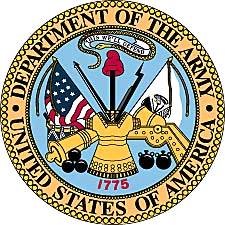 Harry Truman was right. Whether you're a CEO or the temporary head of a project team, the buck stops here. You can encourage participative management and bottom-up employee involvement, but ultimately the essence of leadership is the willingness to make the tough, unambiguous choices that will have an impact on the fate of the organization. I've seen too many non-leaders flinch from this responsibility. Even as you create an informal, open, collaborative corporate culture, prepare to be lonely.
Harry Truman was right. Whether you're a CEO or the temporary head of a project team, the buck stops here. You can encourage participative management and bottom-up employee involvement, but ultimately the essence of leadership is the willingness to make the tough, unambiguous choices that will have an impact on the fate of the organization. I've seen too many non-leaders flinch from this responsibility. Even as you create an informal, open, collaborative corporate culture, prepare to be lonely.
Tuesday, August 15, 2006
Colin Powell: Leadership Lesson 18/20: "Have fun in your command..."

"Have fun in your command. Don't always run at a breakneck pace. Take leave when you've earned it: Spend time with your families. Corollary: surround yourself with people who take their work seriously, but not themselves, those who work hard and play hard."
Herb Kelleher of Southwest Air and Anita Roddick of The Body Shop would agree: seek people who have some balance in their lives, who are fun to hang out with, who like to laugh (at themselves, too) and who have some non-job priorities which they approach with the same passion that they do their work. Spare me the grim workaholic or the pompous pretentious "professional;” I'll help them find jobs with my competitor.
Friday, August 11, 2006
Colin Powell: Leadership Lesson 17/20: "The commander in the field is always right..."

"The commander in the field is always right and the rear echelon is wrong, unless proved otherwise."
Too often, the reverse defines corporate culture. This is one of the main reasons why leaders like Ken Iverson of Nucor Steel, Percy Barnevik of Asea Brown Boveri, and Richard Branson of Virgin have kept their corporate staffs to a bare-bones minimum - how about fewer than 100 central corporate staffers for global $30 billion-plus ABB? Or around 25 and 3 for multi-billion Nucor and Virgin, respectively? Shift the power and the financial accountability to the folks who are bringing in the beans, not the ones who are counting or analyzing them.
Thursday, August 10, 2006
Colin Powell: Leadership Lesson 16/20: "P=40 to 70"

"Powell's Rules for Picking People:"
Part I: "Use the formula P=40 to 70, in which P stands for the probability of success and the numbers indicate the percentage of information acquired.”
Part II: "Once the information is in the 40 to 70 range, go with your gut."
Don't take action if you have only enough information to give you less than a 40 percent chance of being right, but don't wait until you have enough facts to be 100 percent sure, because by then it is almost always too late. Today, excessive delays in the name of information-gathering breeds "analysis paralysis." Procrastination in the name of reducing risk actually increases risk.
Monday, August 07, 2006
Colin Powell: Leadership Lesson 15/20: "The KISS Principle"

"Great leaders are almost always great simplifiers, who can cut through argument, debate and doubt, to offer a solution everybody can understand."
Effective leaders understand the KISS principle, Keep It Simple, Stupid. They articulate vivid, over-arching goals and values, which they use to drive daily behaviors and choices among competing alternatives. Their visions and priorities are lean and compelling, not cluttered and buzzword-laden. Their decisions are crisp and clear, not tentative and ambiguous. They convey an unwavering firmness and consistency in their actions, aligned with the picture of the future they paint. The result: clarity of purpose, credibility of leadership, and integrity in organization.
Saturday, August 05, 2006
Colin Powell: Leadership Lesson 14/20: "Powell's Rules for Picking People"

"Powell's Rules for Picking People:"
Look for intelligence and judgment, and most critically, a capacity to anticipate, to see around corners. Also look for loyalty, integrity, a high energy drive, a balanced ego, and the drive to get things done.
How often do our recruitment and hiring processes tap into these attributes? More often than not, we ignore them in favor of length of resume, degrees and prior titles. A string of job descriptions a recruit held yesterday seem to be more important than who one is today, what they can contribute tomorrow, or how well their values mesh with those of the organization. You can train a bright, willing novice in the fundamentals of your business fairly readily, but it's a lot harder to train someone to have integrity, judgment, energy, balance, and the drive to get things done. Good leaders stack the deck in their favor right in the recruitment phase.
Friday, August 04, 2006
How to become a good manager 1
Colin Powell: Leadership Lesson 13/20: "Perpetual optimism..."

"Perpetual optimism is a force multiplier."
The ripple effect of a leader's enthusiasm and optimism is awesome. So is the impact of cynicism and pessimism. Leaders who whine and blame engender those same behaviors among their colleagues. I am not talking about stoically accepting organizational stupidity and performance incompetence with a "what, me worry?" smile. I am talking about a gung-ho attitude that says "we can change things here, we can achieve awesome goals, we can be the best." Spare me the grim litany of the "realist," give me the unrealistic aspirations of the optimist any day.
Wednesday, August 02, 2006
Colin Powell: Leadership Lesson 12/20: "Fit no stereotypes..."
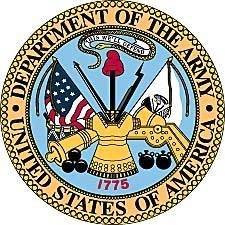
"Fit no stereotypes. Don't chase the latest management fads. The situation dictates which approach best accomplishes the team's mission."
Flitting from fad to fad creates team confusion, reduces the leader's credibility, and drains organizational coffers. Blindly following a particular fad generates rigidity in thought and action. Sometimes speed to market is more important than total quality. Sometimes an unapologetic directive is more appropriate than participatory discussion. Some situations require the leader to hover closely; others require long, loose leashes. Leaders honor their core values, but they are flexible in how they execute them. They understand that management techniques are not magic mantras but simply tools to be reached for at the right times.
Monday, July 31, 2006
Colin Powell: Leadership Lesson 10: "About ego's"

"Never let your ego get so close to your position that when your position goes, your ego goes with it."
Too often, change is stifled by people who cling to familiar turfs and job descriptions. One reason that even large organizations wither is that managers won't challenge old, comfortable ways of doing things. But real leaders understand that, nowadays, every one of our jobs is becoming obsolete. The proper response is to obsolete our activities before someone else does. Effective leaders create a climate where people’s worth is determined by their willingness to learn new skills and grab new responsibilities, thus perpetually reinventing their jobs. The most important question in performance evaluation becomes not, "How well did you perform your job since the last time we met?" but, "How much did you change it?"
Sunday, July 30, 2006
Colin Powell: Leadership Lesson 9: "Organization charts and fancy titles count for next to nothing."

Organization charts are frozen, anachronistic photos in a work place that ought to be as dynamic as the external environment around you. If people really followed organization charts, companies would collapse. In well-run organizations, titles are also pretty meaningless. At best, they advertise some authority, an official status conferring the ability to give orders and induce obedience. But titles mean little in terms of real power, which is the capacity to influence and inspire. Have you ever noticed that people will personally commit to certain individuals who on paper (or on the organization chart) possess little authority, but instead possess pizzazz, drive, expertise, and genuine caring for teammates and products? On the flip side, non-leaders in management may be formally anointed with all the perks and frills associated with high positions, but they have little influence on others, apart from their ability to extract minimal compliance to minimal standards.


